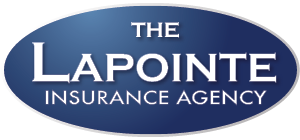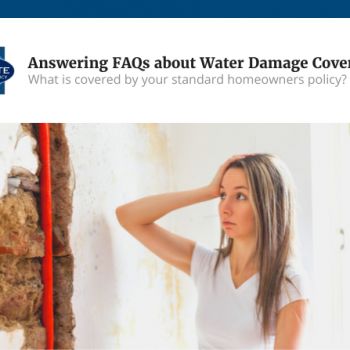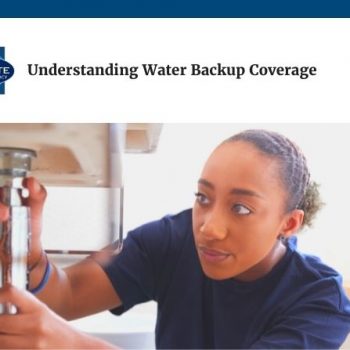Answering FAQs about Insurance Binders
- Posted by Daniel Simcock
- On May 26, 2021
In this article, we’ll take a deeper dive into insurance binders. We’ll discuss what they are, how they are different from other insurance documents, and why they are important to the homebuying process.
Key Takeaways
- A binder is one-page contract issued by your insurance company that guarantees that you’ll be insured at the time of close.
- Your bank or mortgage lender may require an insurance binder prior to closing on a home. Because of this, it’s best to get an insurance binder as early in the homebuying process as possible.
- Your home insurance policy goes through a process: first, you’ll receive quotes from your insurance agent; next, your agent will create a binder, binding that quote for a certain period; finally, once you close on a home, your policy takes effect.
Shopping for a new home can be an exciting time. But it can also can a confusing time. It’s likely you’ll encounter some jargon in the homebuying process. There’s one term especially that you may hear your agent, your lender, and your bank throw out often: “insurance binder.”
What is an insurance binder?
Put simply, a binder is a temporary contract issued by an insurance company. This contract is a guarantee by the insurance company that they will insure your home at the time of close.
You may be curious: Does an insurance binder look like one of those three-ring binders you used in school? The answer is, no. Not at all.
An insurance binder is usually just a one-page document. They call it a binder because the contract “binds” an insurance policy that does not yet exist.
What is in a binder?
There are a few important details outlined in an insurance binder, including:
- Type of policy
- Your coverages
- Perils your policy insures against
- The length/duration of the policy
- Information about the insurance company
To sum things up: a binder is one-page contract issued by your insurance company that guarantees that you’ll be insured at the time of close.
Why do I need an insurance binder prior to closing on a property?
Before you buy a home, your mortgage lender is going to require that you have homeowner’s insurance. To make sure you have homeowner’s insurance, your bank, your mortgage firm, or any other agency or firm who deals with the financial end of homebuying, is going to need an insurance binder so that you can get a loan to close.
Your lender cannot start the loan process without an insurance binder.
Your responsibility as the homebuyer is to get an agent and get an insurance binder. Your lender or realtor may give you a few leads on insurance, but ultimately it is your choice which insurance company to go with.
When should I get an insurance binder?
It is important that you touch base with an insurance agent early in the homebuying process to make sure that you get a binder in time.
We recommend that you discuss getting a binder with your insurance agent soon after you sign the purchase and sales agreement. This agreement is often signed 45 days before the closing date. This time allows you and your agent enough time to work out the details of your policy and your binder. As well, this gives your lender and financers enough time to process any paperwork that is necessary to close.
Your insurance company can usually produce a binder quickly, often within 24 hours of notice. But the earlier you get it started, the faster your agent can work through any problems that may arise.
If you wait until last minute to get a binder, your closing date may be delayed. Again, the earlier in the homebuying process you get a binder, the better.
What is the difference between a binder and a declaration page (certificate of insurance)?
An insurance binder is a temporary contract that proves your insurance company will cover you and your property.
Think of a binder like a temporary driver’s license. You use a temporary driver’s license while waiting for your permanent driver’s license to come in. You need to carry it to prove you are legally able to drive. But the temporary driver’s license expires, at which point you must use your permanent driver’s license.
Similarly, a binder will expire once you have closed on a property and your insurance coverage takes effect.
You will often encounter this when you’re buying a new home or property. During the homebuying process, your lender requires an insurance binder in order to start processing a loan.
On the other hand, an insurance declaration is a summary or inventory of your insurance policy. It outlines what is covered, how much coverage you have, and also outlines your limits and deductibles.
If an insurance binder is like a temporary driver’s license, a declaration, or ‘dec page’ is like your permanent license. Your permanent license is an important document that tells the world are legally able to drive. But it does not explain everything related to your driving – the car you drive, your record, ect. Likewise, your declaration will not explain all your coverages in depth. For that, you would read your insurance policy.
What is the difference between a binder, a quote, and a policy?
A quote is an estimate of premium for the insurance coverage you selected and information you entered. A quote is not an offer for insurance or an insurance contract.
If you decide you like that quote, then your insurance provider will come up with an insurance binder. That insurance binder is a contract that says once you purchase your home, you will be covered.
During the homebuying process, your lender requires an insurance binder in order to start processing a loan. As this process occurs, your insurance binder may need to be continually updated as mortgagee information changes.
Once you purchase your home, have signed on the dotted line, your binder will dissolve. And you will have an insurance policy.
We hope we’ve helped you better understand insurance binders and their role in the homebuying process. And now we’d like to turn it over to you. Did you learn something new from this article? Or do have a question about your homeowners policy? Leave a comment below or contact us at info@lapointeins.com.


